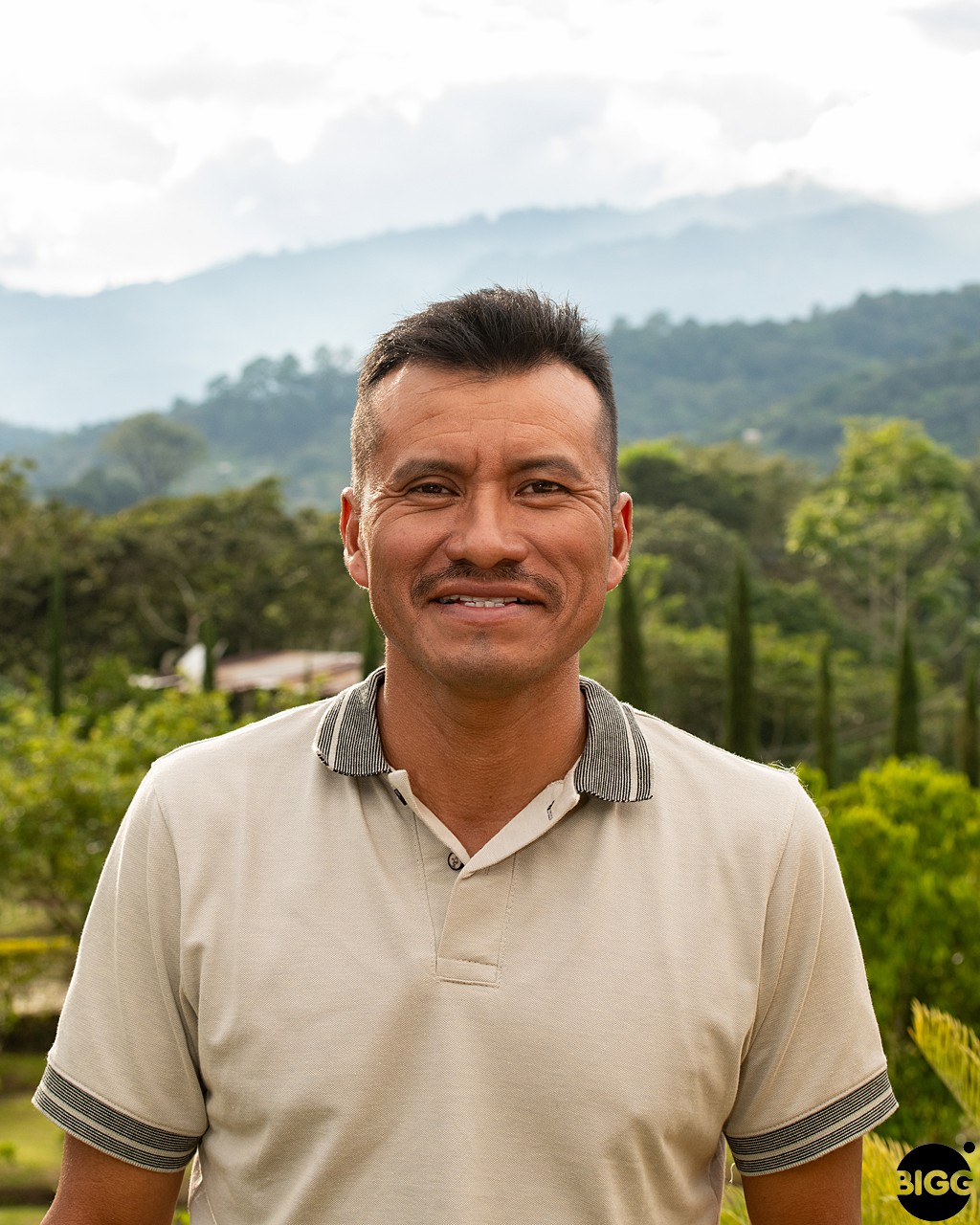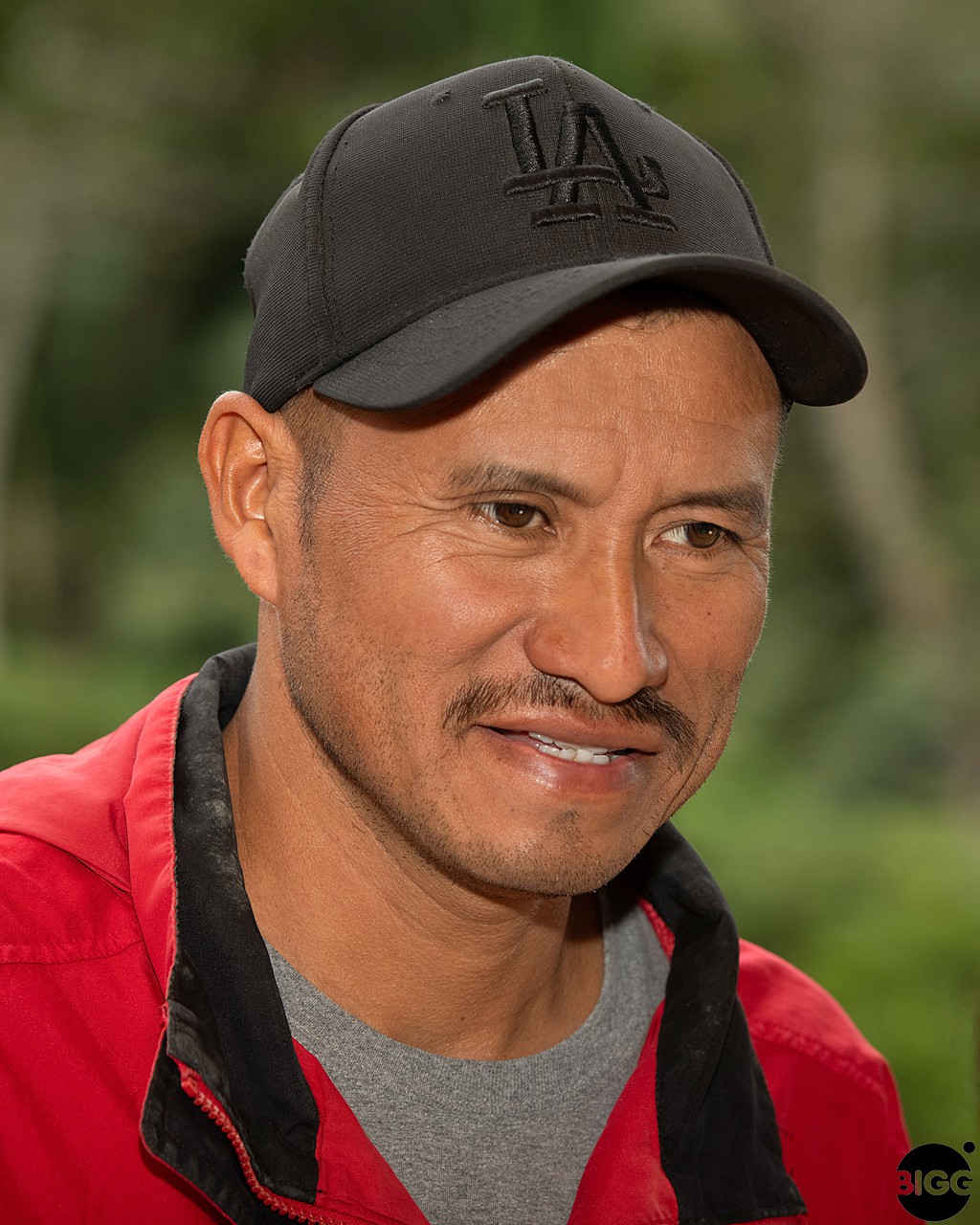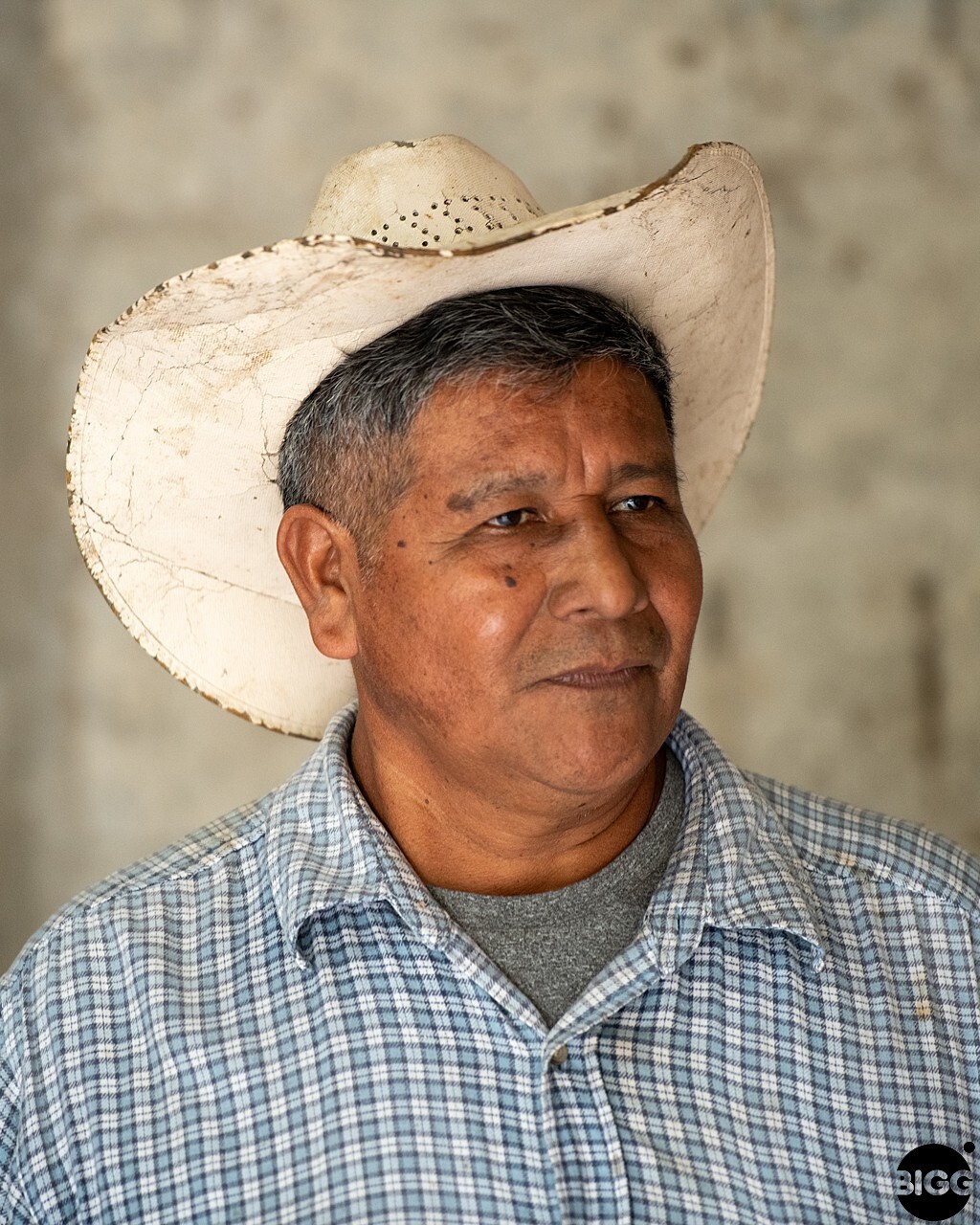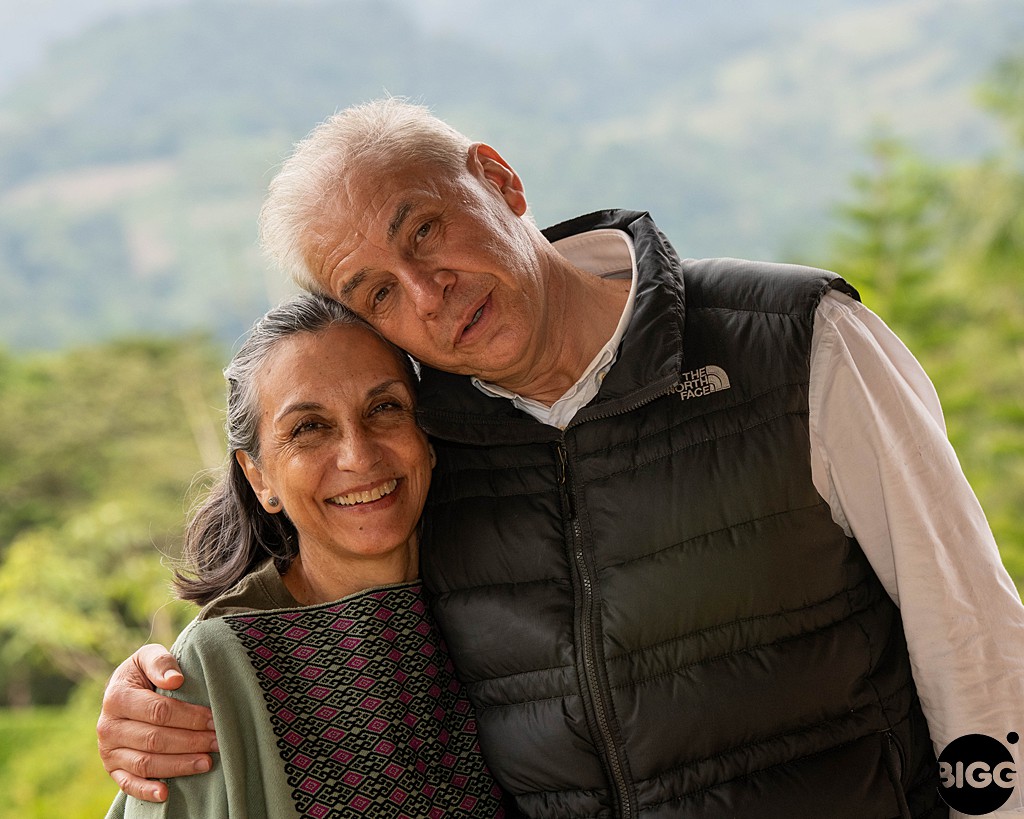Desire. Dedication. Dependability.
If, over the last 15 or so years, you have ever found yourself in an audience listening to my husband Bob give his business group presentation on “What Makes a Successful Entrepreneur,” then you will know that he always leads with the Three D’s.
Desire. Anyone that wants to be in business for themselves has plenty of that. That’s the easy part.
Dedication, as Bob defines it, is an adherent, steadfast commitment to bringing that idea to life, with a large helping of determination to overcome every obstacle, on the side.
But perhaps the hardest D is Dependability. It is, after all, just another word for responsibility: to yourself, to your employees and partners, and to your community. It’s about living up to your word every day, and ALWAYS being there, especially when the going gets tough.
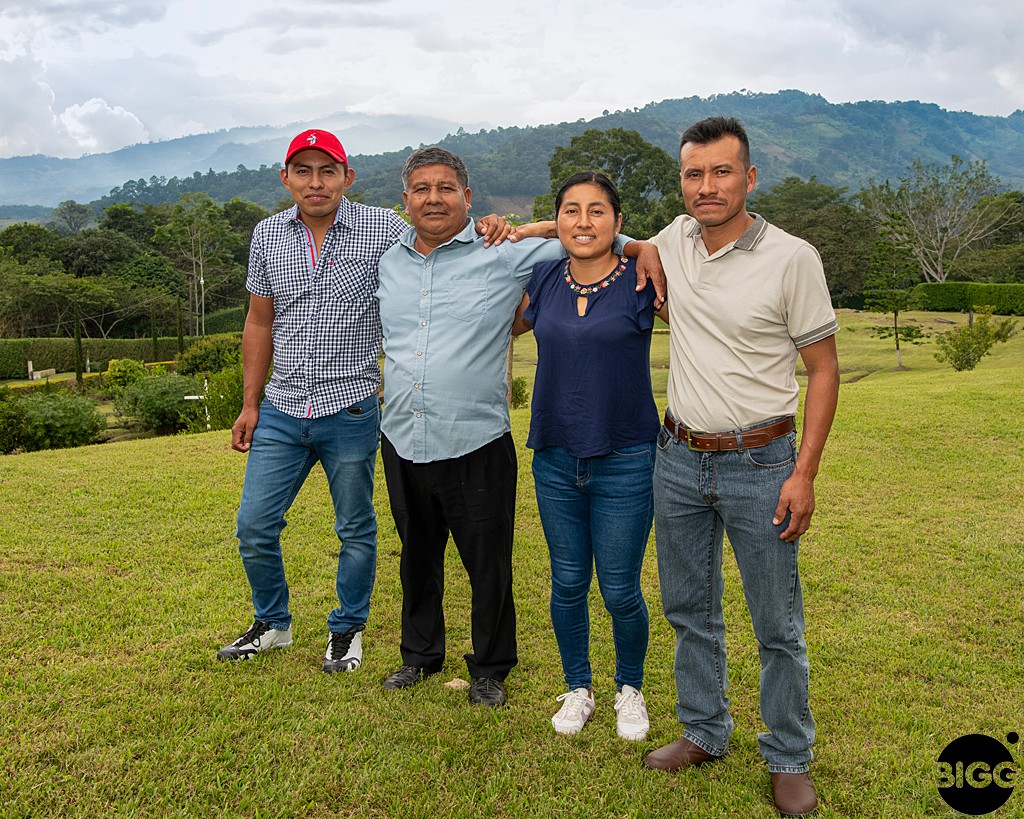
The four small producers that are a part of our Farm-Direct partnership with Finca La Fortaleza, from L-R: Solomon Demeza, Pascual Hernandez, Marta Vasquez, and Miguel Angel Cruz
It struck me as I was sitting with a group of four small coffee producers in Chiapas, Mexico, that we could all learn a thing or two about the Three D’s from Miguel Angel Cruz, a coffee farmer working his three hectares of land (a little more than seven acres) in the Majasil region of Chiapas.
He’s one of the small producers whose coffee we buy through our partnership with Pascual Castillo and Maria Esther Saut from Finca La Fortaleza. And he had made the long drive from his farm through the pouring rain so that we could spend some time together on our most recent visit. He brought along his beautiful family: his wife Rosa, and children (from oldest to youngest), Angel, Rosario, and Pablo.
As I listened to him tell his story, it occurred to me that his journey through the Three D’s started from a very early age with the hardest one: Dependability.
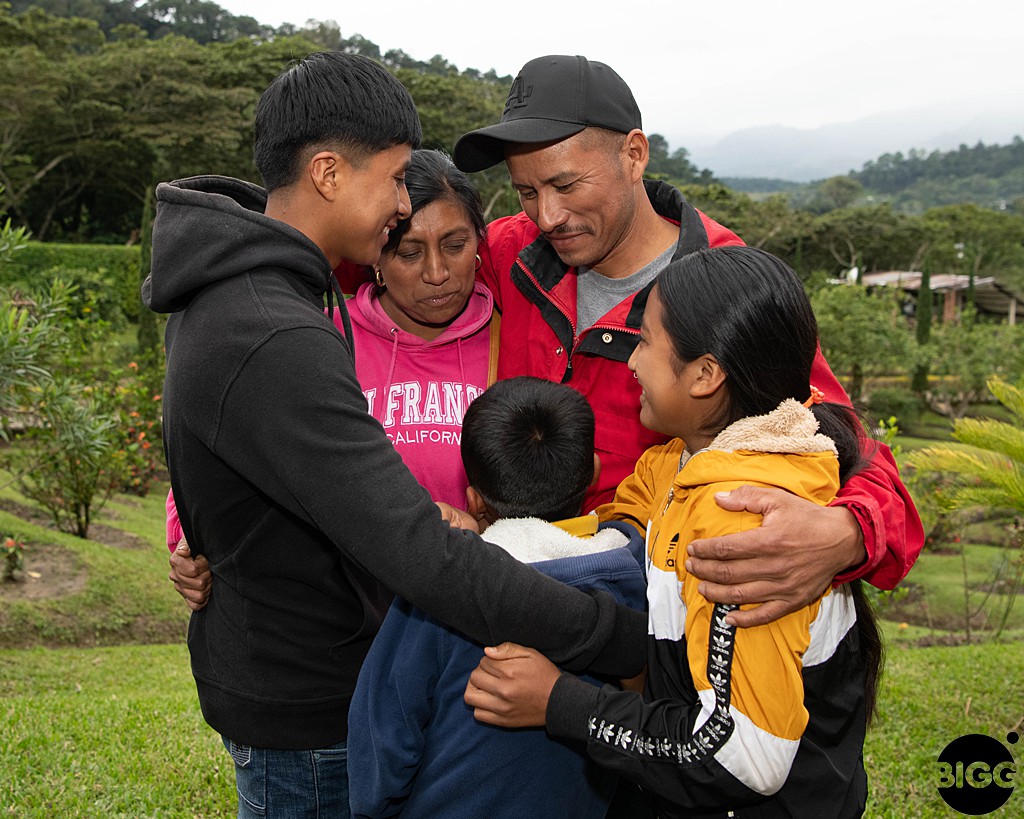
Miguel with his wife, Rosa, and their three children, Angel, Rosario, and Pablo.
Origin Story
Miguel is very proud of his coffee heritage. His family has been farming the land they own for many generations growing coffee on a steep, fertile mountain side that is remote and hard to get to, even by Chiapas standards. It’s the Cruz family legacy. But it was not a given that it would be Miguel’s.
He started working on the farm as a young child, side by side with his father. That’s not unusual. He, his brother, and his six sisters were all taught from a young age that family was the priority, and that for them to succeed, they all had to chip in, work hard, and pull their weight. They all had chores to do on the farm, chores to do at home, and school (which was a two hour walk away), to attend. Times were sometimes tough, but the one thing they knew for sure was that they could count on each other. They were all Dependable.
Miguel stood out as a very bright student. In fact, he excelled. It was decided that he, alone among his siblings, would pursue a higher education. His dream was to become a Civil Engineer. And his family shared that dream for him, too.
In fact, when Miguel and his brother reached a certain age, and it came time for his father to bestow gifts upon them, he gave the brother a hectare of his very fertile coffee-growing land. Their family land is particularly precious. It is at very high altitude, which is ideal for growing the very best coffee. And there is abundant water. In a region where many, many families are trying to make it on half of that, it was a princely gift.
But Miguel, though he was equally loved, got a half a hectare. Because everyone knew his future lay outside of coffee.
He went off to University with great promise and even bigger dreams.
Market Realities
And then the price of coffee on international markets fell to new historic lows. And there just wasn’t the money for Miguel to continue University.
He shifted gears. He had no choice.
At first, he came home to work his ½ a hectare of coffee. But it wasn’t enough to sustain him, let alone fuel his dreams of buying more land and building a house. So, in 2004, he applied for a Visa to work in the US, and he got one. He worked a variety of jobs in agriculture: growing Christmas trees in North Caroline, tobacco in Virginia, and sweet potatoes in Kentucky. But his heart was back in Chiapas with Rosa, who had been his girlfriend since Middle School.
In 2009, coffee prices had risen from around 18 pesos per kilo in 2002 to 49 pesos per kilo. He had managed to save some money. And it seemed to him that it the moment had finally come to head home and build a life with Rosa on the farm.
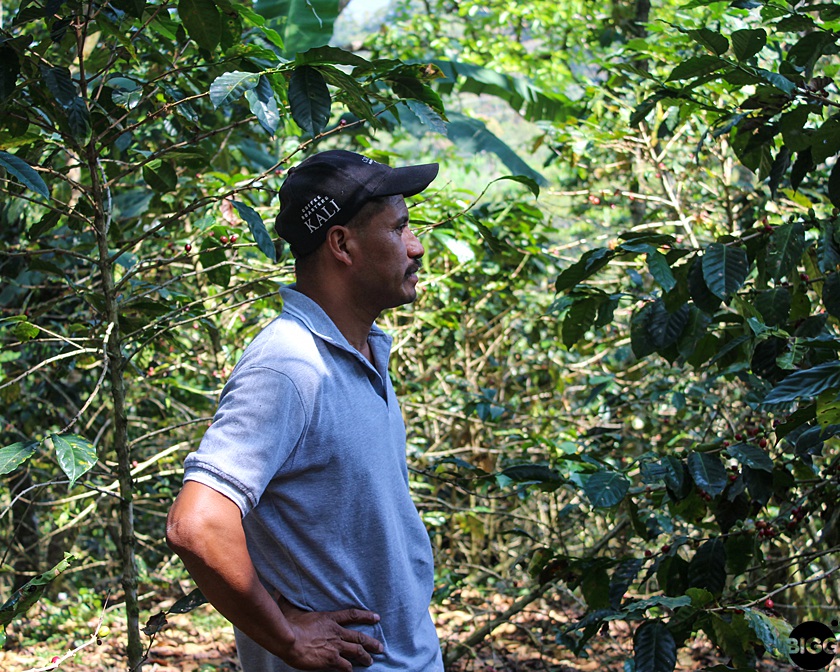
Miguel on his land in Majasil.As fate and luck would have it, one of the first people Miguel met as he was getting his ½ hectare back in shape was Pascual Castillo, who at the time was buying coffee for his family’s processing and exporting business out of Vera Cruz, Mexico. Pascual had a reputation for being exceedingly fair, and full of good advice about how to improve yields and quality. Pascual and Miguel struck up a friendship.
With time and a lot of hard work, Miguel was able to buy more land and produce more coffee. By 2014, he had grown his farm from half a hectar, to three. The future was bright.
And then the Roja came.
Devastation
I asked Miguel to describe what it was like in 2014 when the Roja epidemic wiped out coffee production in Chiapas, Mexico. He described it as a nightmare. He watched, helplessly, as he lost everything he had worked for over the course of just 40 days. First, the leaves on his plants turned color, and fell. Then the fruit withered. Then the plants died. And no matter what he tried to do to stop it, the Roja was relentless. In the end he, and every coffee farmer in his community, were left with nothing.
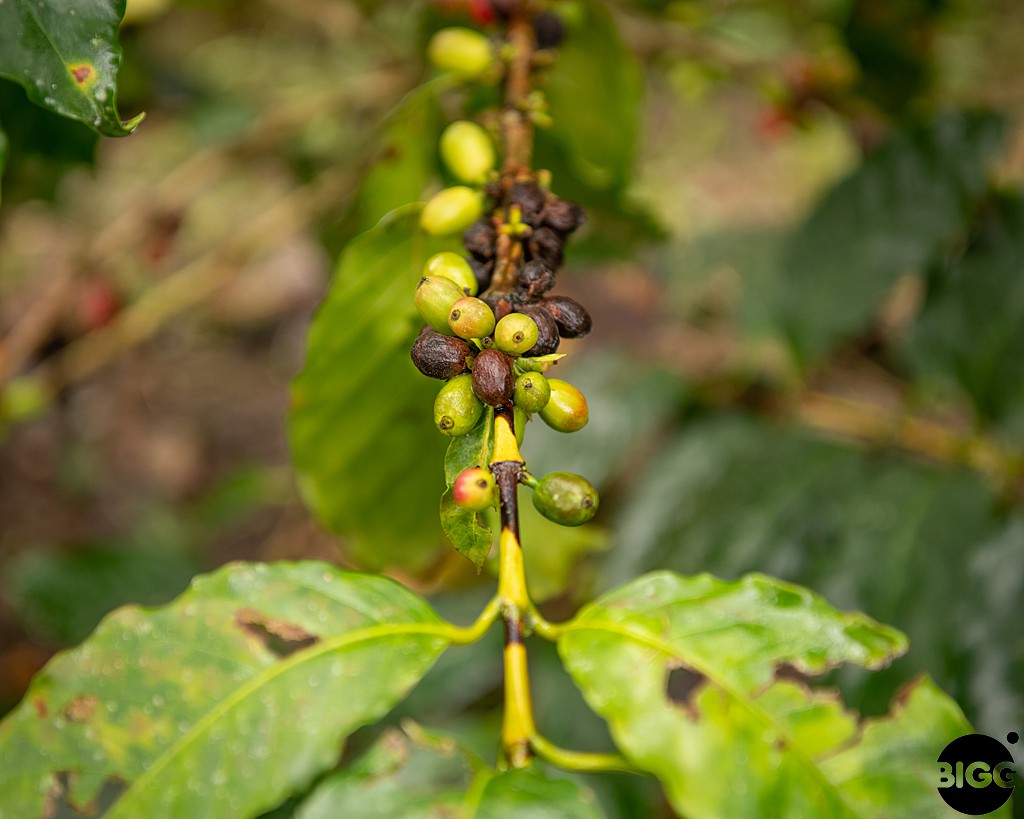
Roja, or rust on a coffee plant.But Pascual Castillo, a man who knows a thing or two about the three Ds himself, showed up on his doorstep with an offer. He asked Miguel if he wanted to help his community recover. He promised work, new rust resistant seedlings with which he could establish a nursey for himself and his neighbors, and training. In return, Miguel would help transform Pascual’s cattle ranch into a coffee farm, as a laboratory to show all of the small producers in Chiapas that coffee could thrive again.
He talked it over with Rosa. He was uncomfortable with the idea of stepping up to be a leader in his community, not sure he was up to the task. His friends were skeptical that Pascual’s vision could work. But he decided to take the leap, and he threw himself into the task by leaning into all three of the Ds.
Building Blocks
For three years, a Finca la Fortaleza truck showed up at 4 am every Monday through Saturday in Miguel’s village. Miguel, and several of his neighbors, would make the two-hour trip down the mountain to do the seemingly impossible manual labor of transforming trampled, deforested cattle land into the vibrant coffee farm it is today. He helped build the initial nursery for the rust resistant seedlings and learned how to care for and propagate the plants.
At the same time, Pascual provided him with 25,000 rust resistant seedlings to start the community nursery in Majasil. With the help of one of his friends, they turned that nursey of 25,000 plants into 50,000, and began to distribute them to a few of their less skeptical neighbors, along with the training on the new agronomy.
After working all day with Pascual, Miguel would head home to care for the plants in the nursery, and work in his own fields. He ripped out the old coffee plants, replacing them with the new seedlings.
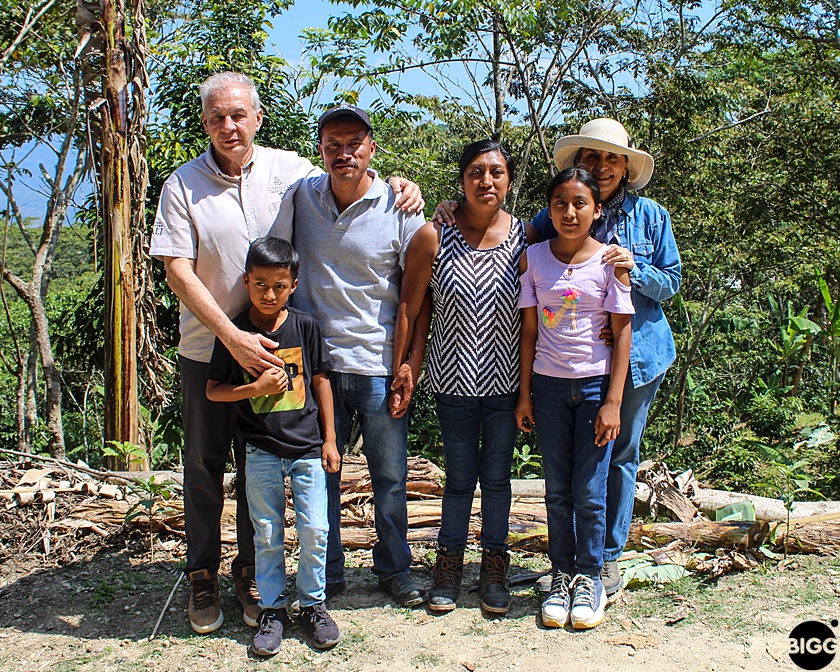
Pascual Castillo (far left) and Maria Esther Saut (far right) with Miguel and his family.Gradually, as more of his neighbors began to see the new coffee thriving in his fields, they asked Miguel for help in reestablishing their own coffee production. So in addition to the work he was doing for Pascual, and on his own farm, he stepped up to the responsibility of helping his neighbors.
Pascual was right by his side, providing more plants, and the machinery the community needed to clear their fields. It took time, and a whole lot of work, but his community began to recover. All told, Miguel’s community nursery provided seedlings to almost 500 families, with farms that ranged in size from half a hectare to six hectares.
These days, Miguel is seen as a leader, someone his neighbors can count on for support and guidance. And they call Pascual a “Messenger from God,” for being the one person who stepped up for their community when everyone else abandoned them.
Dreams
Since last year, BIGGBY COFFEE has been buying Miguel’s coffee through our Farm-Direct partnership with Finca La Fortaleza. For the first time in his coffee farming career, Miguel knows that he will sell his coffee this year, and in the years to come, at a fair price that’s based on the economics of his farm, not on the vagaries of the C-Contract.
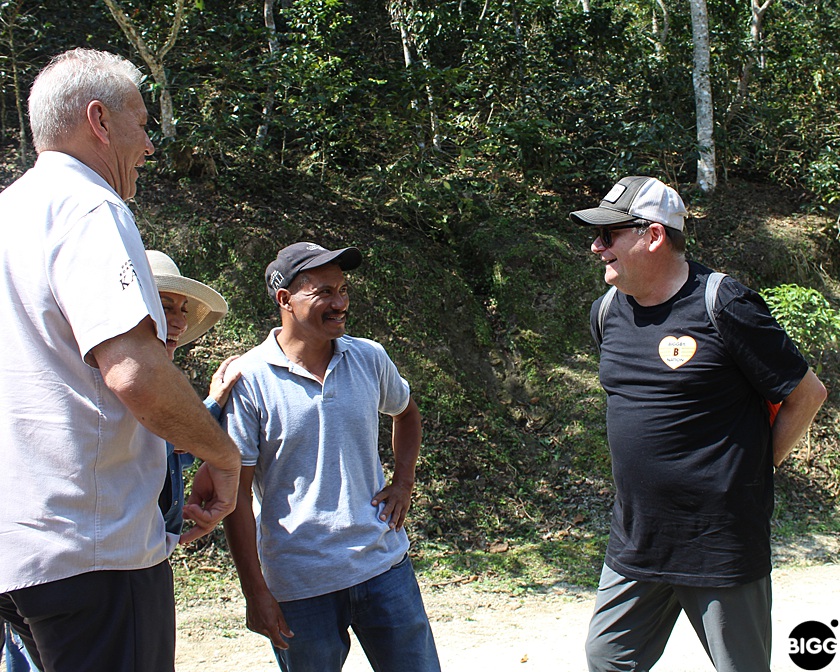
His dreams for his farm and his family have always been big. And he has always worked very hard to make them a reality. And now, he is finally getting closer to one of the biggest dreams of his life: to build a house for his family. He has already bought three thousand units of rocks and the steel beams he needs to start construction. He’s planning on breaking ground for the foundation this year. One thing we know: if Miguel said he’s going to get it done, you can depend on him to see it through.

